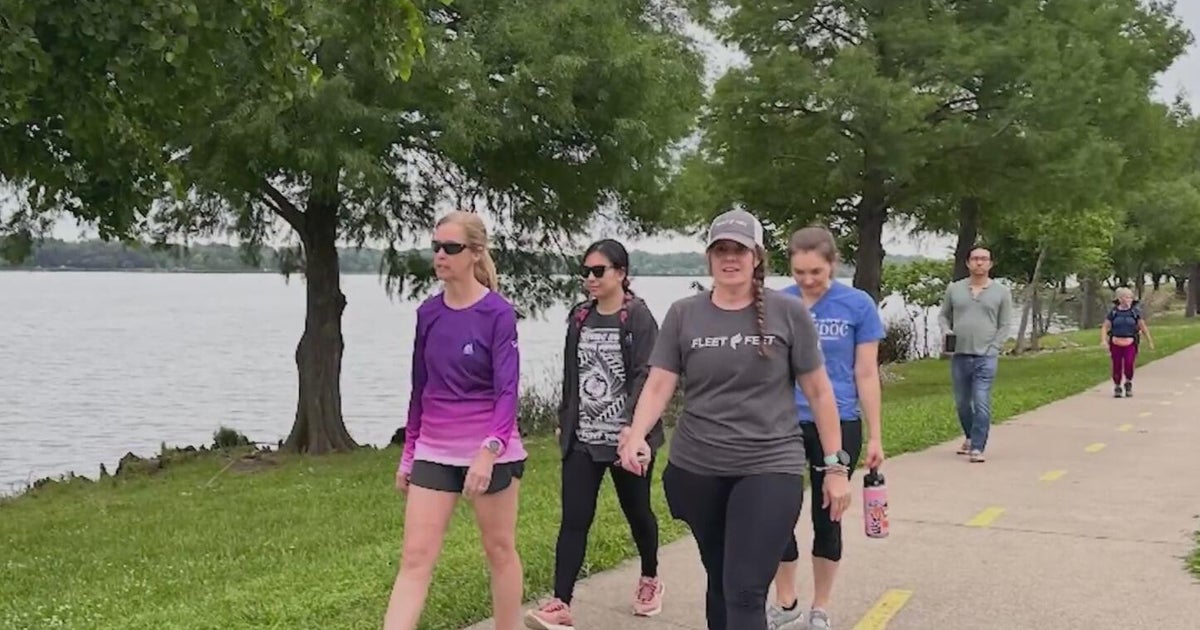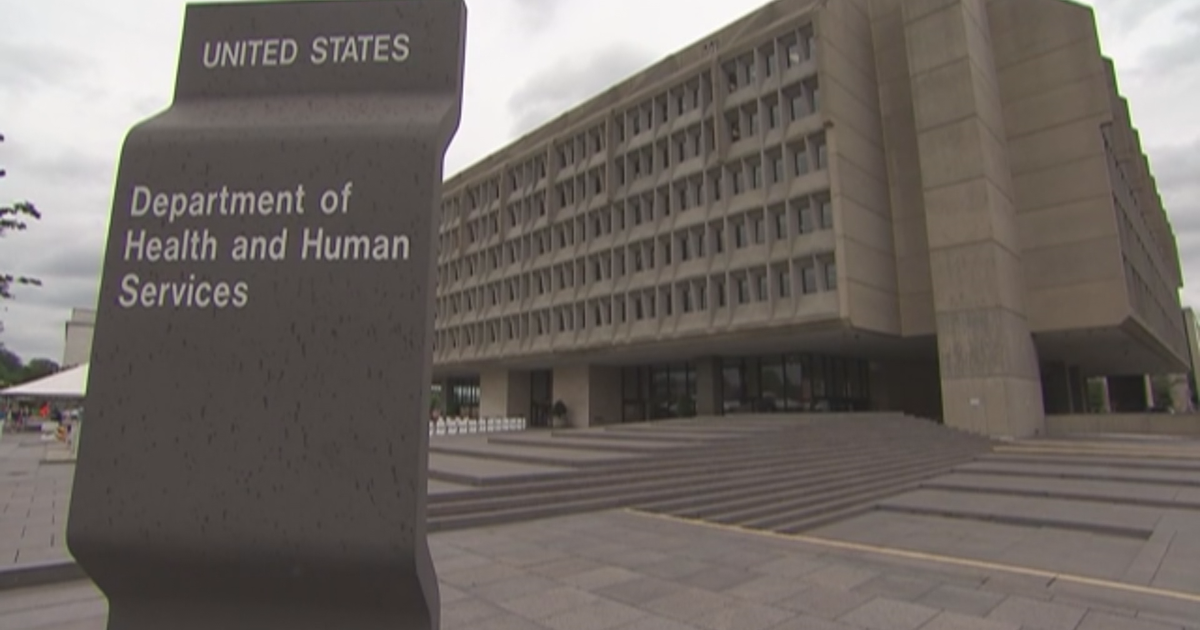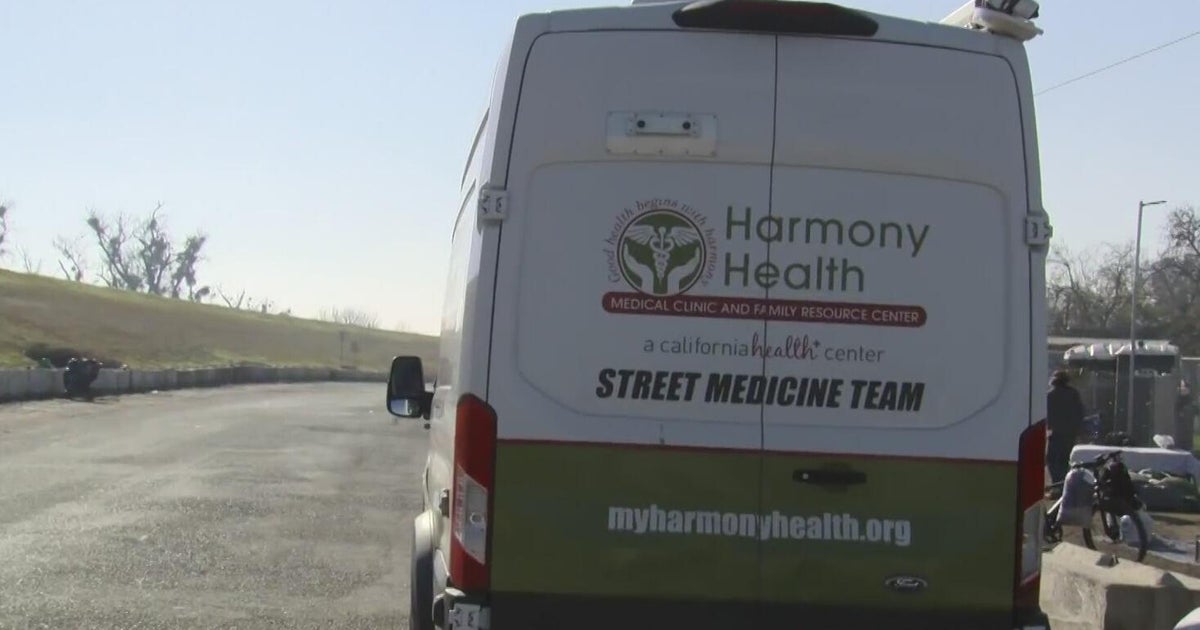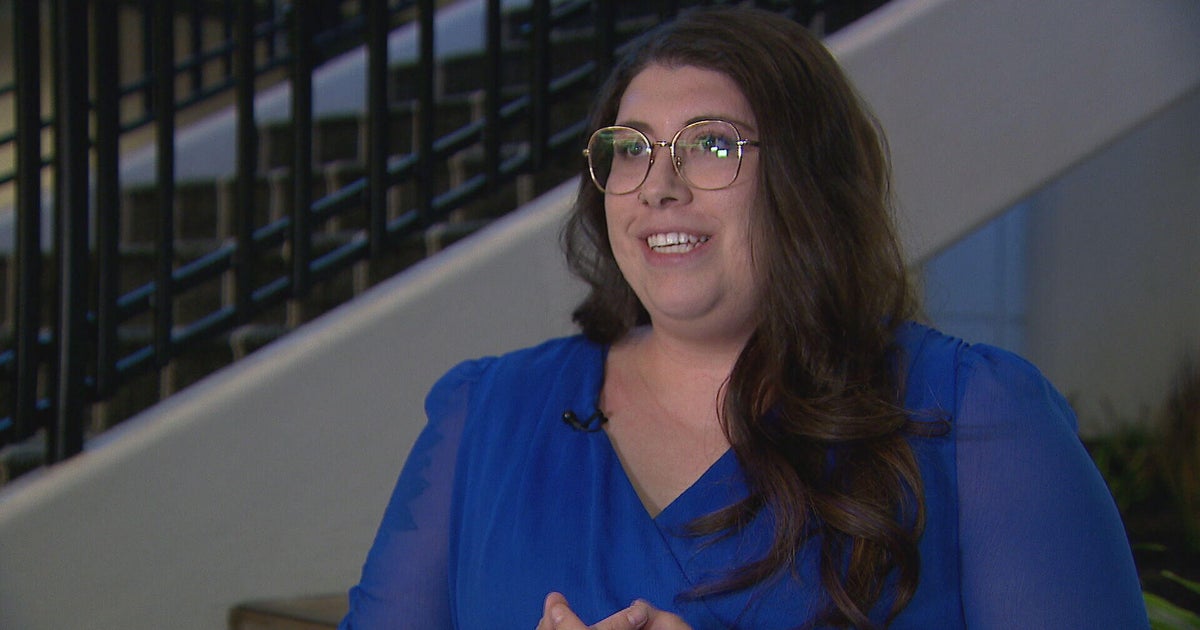Kids in Crisis: A look at youth and mental health
(CBS DETROIT) - In conjunction with the documentary release "Connecting the Dots," CBS stations across the nation are looking at mental health issues facing young people. As part of that series, our Executive Producer Impacting Communities spoke to two Michigan families in crisis.
It's been a difficult road for two Michigan families.
"We have a lot of property destruction, at our home, there's holes in walls, um, broken windows," said Janine and Jay Teagarden, the parents of a teen with mental health challenges.
"He will rip things off walls and throw anything he can get his hands on. He will, if he's close enough he will kick you, punch you, bite," said Laura Marshall, the mother of another team with similar difficulties.
The families say their adopted sons experienced high levels of trauma early in life, resulting in a long term need for mental health care.
"Complex post-traumatic stress disorder is his primary diagnosis," said Janine Teagarden.
"He experienced just tremendous levels of trauma from loss after loss. The first official diagnosis we got was reactive attachment disorder," said Marshall.
Services were given to the now early teenaged boys through the Michigan Department of Health and Human Services respective Community Mental Health Departments.
We've done everything that was suggested that we try over the years. Nothing was truly making a big enough difference and the older he gets the more aggressive the behavior," said Marshall.
"He just continued to attack me in the parking lot, next to the side of the road. I called 9-1-1, so eventually the local officers showed up and they were amazing with him. It was such a huge incident that the state was then gonna press charges against him and I was like (shaking head no) he needs mental health care, we do not need criminal records," said Janine Teagarden.
The families again requested residential treatment, the problem with that?
"Probably around the late 1990s, early 2000s, the state of Michigan decided to change the rules around how child caring institutions were funded and said that community mental health services providers, CMH's, could not use Medicaid to pay for specialized residential because of concern around restraint and seclusion," said Marianne Huff, the President of the Mental Health Association of Michigan, and a former Community Mental Heath Director.
Leaving the state with around two youth mental health in patient treatments, depending on what you need. Robert Sheehan, and CEO of Community Mental Health of Michigan acknowledges, "you said it well in your emails, there aren't facilities where unless the kid, I mean, that can serve kids who haven't broken the law, haven't gotten arrested, whose parents aren't - who haven't given up parental rights, right? There are no – this is no real system for that, that's the gap."
And the solution, these parents say, is unfair and unjust.
Option one, juvenile justice.
"I explained our situation again, our concerns about the on-going safety concerns in our home, the day to day walking on egg shells of what will set him off next. And this person who is upper level management with Network 180, community mental health authority for this region looked me in the eye and informed me that because my son is already involved with the juvenile justice system, I needed to pursue services against the courts," said Marshall.
"Is that what I have to do? And the truth is, yeah! If you want your kid in long term residential away from you, the only way there is because you've broken the law as a kid, or because you're in the child welfare system, neither of which the parent wants," says Sheehan.
"It would take a change in state law because right now, CCI's, which is what those are called, can't use – these are federal terms, seclusion and restraint. You can't seclude a kid by law yet. So, they would have to say under certain conditions, a kid could live in a long term residential, see, because you can seclude a kid who's under arrest, right? If you're a juvenile who's been arrested, that's what you do actually."
But Sheehan stresses, this is not policy.
"No one would say, here's a good recommendation for you. I shouldn't say no one, I mean who knows, right, Amyre, but no, that's not policy, that's not appropriate practice. That's not the recommendation anybody would make. But is it, as you said, the only gate to walk through, the only gates to walk through to get to long term residential. "Robert Sheehan/CEO, Community Mental Health of Association of Michigan
For Laurie, she hasn't seen her son since early December of last year.
"The probation officer, per our request granted us an hour with our son. And to say our goodbyes. We got an hour with him in a big open conference room. (how old is he now?) He's 14. (Where did he turn 14?) In juvenile detention in Kent County. He'll turn 15 in the state of Wyoming. I'll miss two birthdays," said Marshall.
Option two. private pay. The Teagardens declined the juvenile justice route and are instead paying for care out of state privately to the tune of 15 thousand dollars a month.
"Who is paying for all this? We are. How? This is where I need to take a deep breath. It's been 100% out of pocket. Which, we do not have money so when I say out of pocket, that's our retirement – it's gone. Any little savings we started for college, it's gone. Every credit card is completely maxed out. And our home has a second mortgage on it. And it's all used. It's all gone," said the Teagardens.
A lawsuit was filed in 2018 against the state of Michigan called KB Versus Lyon over the alleging that the state lacks sufficient of mental health care resources and treatment options for our youth. It is still pending in the court system. Dave Honigman, the lawyer presenting the group suing the state, says that talks have begun between the state and advocates on ways to expand resources. In the most recent 2023 fiscal year budget from Governor Whitmer's office, $625 million was set aside for new investments in behavioral health funding and workforce.
Included in the 2023 budget agreement is $625 million in new investments for behavioral health funding and the healthcare workforce. This includes:
$50 million to expand pediatric inpatient mental and behavioral health capacity throughout the state.
$30 million to establish crisis stabilization units for mental and behavioral healthcare.
$10 million to fund the essential health provider loan repayment program to cover behavioral and mental health professionals.
New and ongoing funding of $3.5 million to support the statewide trauma system.
$56 million to increase Medicaid reimbursement rates for primary care clinician services.
$56 million to fund the nursing programs at community colleges across the state.
Specifically, the budget reflects the protection or enhancement of many MHA priorities, including:
Maintains funding for the Healthy Michigan Plan.
Protects funding for the graduate medical education of physician residents.
Supports disproportionate share hospitals.
Continues funding for the rural access pool and obstetrical stabilization fund.
Mental Health Resources:
Teen Resources through Michigan
Association for Children's Mental Health
Mental Health Association of Michigan







